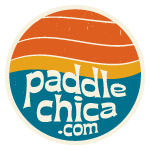Winter training just started for my team and, I have to admit, I felt like I had lost my “mojo”. While I love my team and I love paddling, somehow having a break during the month of October didn’t seem like enough this year. Sure, I went to the gym and rowed on the erg during our time off, but I seemed to be missing some of that sparkly enthusiasm I’d had in years past. Knowing that I had lost a bit of my passion, I decided to find some
Many of us will be heading abroad to race this summer, either to the Club Crew World Championships in Hungary, or the IBCPC in Italy. Whether this is your first international race or not, hopefully you will find these tips helpful as you head off on your travels soon. Best of luck to all teams competing this summer and I hope to see some of you in Hungary! The main framework of this list was originally generated by Jim Farintosh and shared with the paddlers at his Bow Wave Clinic
As adults, we often find it difficult to ask for help or clarification when we don’t understand something. We are reluctant to appear weak or ignorant, and we are frequently intimidated by the very people we should be requesting assistance from. There is something frightening about asking for help from those who are better than us. We tend to put people up on a pedestal and perceive them as more important than ourselves, making it nearly impossible to request any assistance. All too often I have seen paddlers who need
Have you considered attending a dragon boat camp, but are unsure of whether you are up to the challenge of 5-6 straight days of paddling? Do you wonder what is involved in a camp that is so singularly focused on paddling? Have you inquired about a camp, but are nervous not knowing anyone who might attend? In this post, I’ve outlined a typical week at one of the camps I coached at the past two years in order to give you an idea what a dragon boat camp is all about. Keep in mind that
I’m sure it’s happened to you. You’re on track with your training, you’re all set on your path and for some reason, you end up completely off the course that you thought you’d be on. They say “that which doesn’t kill you makes you stronger,” yet that is a tough pill to swallow when you are experiencing some type of obstacle in your training. As athletes, we typically view setbacks negatively because they can cause anxiety, depression, frustration, and even a loss of confidence and motivation. Setbacks can be discouraging,
Recently, my team held time trials on an OC 2. We had to paddle 200 meters as fast as possible while someone else steered the 2-man outrigger canoe. 200 meters sounds like a short distance, but when you are pulling someone else’s weight, it feels more like a 2k. (Read more about OC time trials in a previous post) I stayed at the site after my own trial to cheer on my teammates and to catch up with them, as I’d been out of town for a while. While watching Jen, one of my teammates who
Ever since you were young you’ve heard about the “F-word.” You were warned about it, became frustrated by it, tried it out, accused others of its misuse, and then eventually learned the extent of its power. It has upset you, disheartened you, maybe even harassed you. This may surprise you, but I’m talking about the word “fair.” Using the F-word in dragon boating gives some people an inordinate amount of pleasure but strikes absolute dread in others. Depending on the type of team you paddle on, your team might embrace its use or renounce it. Yet
All too often teams are formed based on a love of paddling, aspirations to improve overall fitness, and a desire to be out on the water. There is a lot of heart, but not necessarily a lot of thought put into the global structure of the team. Having twenty people willing to come to practice is not enough in the long run. As your team begins to grow, it is important to define the type of team you would like your club to be and to set out ground rules for the members.
Ringers. A delicate topic full of opinions and emotion. There are at least as many points of view on this issue as there are dragon boat teams. A “ringer” is defined as a highly proficient person brought in to supplement a team or group. Some teams use them, other teams are staunchly opposed. Whether your team uses so-called “ringers” or not, it is important to understand the rationale for using them. In a talk given by Canadian National Team coach Albert McDonald at Jim Farintosh’s Bow Wave camp in April, Albert explained how teams
The decision to transition a team from a recreational, social one to a more competitive team is often a difficult one which might be met with some resistance. Paddlers who are accustomed to showing up to an occasional practice and yet still racing with the team will perhaps struggle with the idea of being asked participate in fitness testing and to commit to a more rigorous training schedule. However, paddlers who are eager to take it up a notch will be happily challenged by the new rigors. So, how does a team go about

